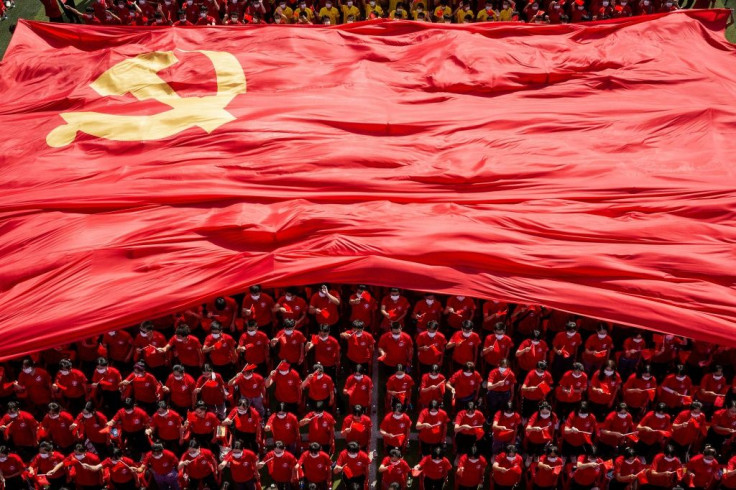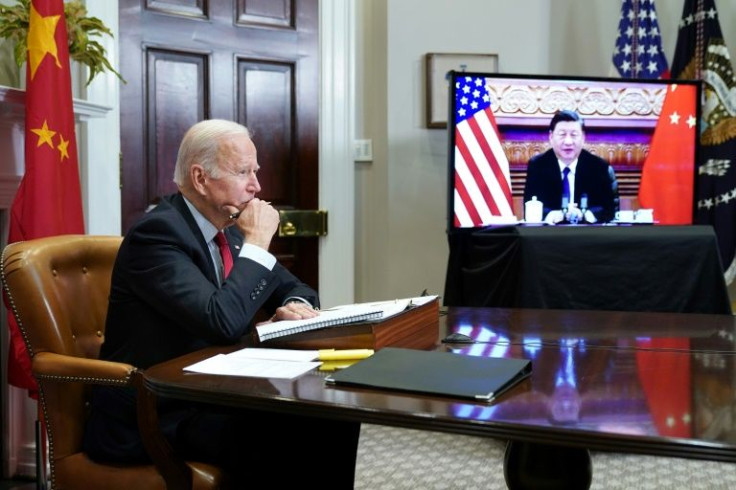Panel Says US Should Limit China-Bound Investment Two Days After Biden-Xi Summit

An influential U.S. government panel has urged Congress to do more to examine risks posed to American investors in China and limit investment in the country over what it sees as a growing set of risks.
On Wednesday, the U.S.-China Economic and Security Review Commission issued its annual report identifying new foreign policy challenges posed by China and it urged Congress to take seriously the potential dangers U.S. investment in the country can pose to American interests.
Central to the report was a recommendation to strengthen U.S. regulators’ scrutiny of financial inflows into China amidst an ongoing crackdown waged by President Xi Jinping. The Chinese leader has for months brought down the weight of the authorities on several of China’s most prominent companies. He justified this push as a way to cut down on growing inequality, but also in the name of protecting cybersecurity or curbing foreign influence.
Among the recommendations it offers are those already being proposed by some U.S agencies. For example, it recommended that regulators prohibit investment from Variable Interest Entities (VIEs) linked to Chinese entities or do more to assess risks posed by these entities.
In July, the Securities and Exchange Commission (SEC) Chairman Gary Gensler urged U.S businesses to be more mindful of the risks of investing in these structures and issued fresh guidance. VIEs are companies that are controlled through contracts with other shell entities in foreign jurisdictions. They are commonly chosen by Chinese companies looking to raise capital on U.S markets, but investors frequently have no say over the VIE.
Other measures it suggests include doubling down on scrutiny of Chinese investment coming into the United States.
The commission suggests that Congress mandate an altogether new entity to identify critical technologies to establish export controls for.

The report comes only two days after President Joe Biden held his first virtual summit with China’s Xi. According to the White House, the two discussed "the importance of managing competition responsibly." It added that Biden underlined U.S. concerns related to Taiwan, human rights violations in Xinjiang and Hong Kong, and what the U.S. sees as Beijing's uncompetitive trade practices that disadvantage American labor and industries.
The tension between the U.S and China has been progressively raised over the course of the Biden presidency and that of his predecessor, former President Donald Trump. However, trade relations remain strong and are approaching levels last seen in 2018, prior to the Trump administration’s start of a trade war with China that year.
U.S businesses have balked at the tariffs imposed by Trump and have been frustrated that Biden has not lifted them. Several influential trade groups have complained as well about what they see as a lack of clarity from the Biden administration on any China strategy, and are likely to be loath to accept new trade restrictions against trade with China.
© Copyright IBTimes 2025. All rights reserved.





















